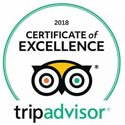Climbing to Kilimanjaro national park doesn’t come free of cost, and many adventurous people start the climb without knowing the cost details. The cost can be varying as there are different travel operators and the cost range tends to change from one to another. With better knowledge about the cost details, it will be easy to ensure that you are not overcharged for the climb up there. There are certain compulsory fees that you cannot neglect.

Basics of price components
The price range of the national park can be variable and fixed. In variable, it includes equipment and transfers, and in the fixed rate, it is park fees per head traveling. The cost is shared between the numbers of people in the group.
Other Components of park fees
On the trek route, conservation is of utmost importance, and so, the national park department has taken the initiative for the maintenance and, therefore, charges the following fees from each trekker. It depends on the number of days and nights which travelers will spend in the park. Some of the options are listed below for ease of decision on the number of days.
Camping fees
Other than camping options at Marangu, the rest are public campsites with common areas like toilets and are well maintained by the park department. Here, the fee is USD 50 per person per night. It is for a number of times for which you will trek and require the camp service.
Conservation charges
It is USD 70 per day per person that is used for the maintenance of the national park. The total charge varies depending on the number of nights a trekker wishes to spend in the park.
Rescue fees
It mainly provides any kind of rescue service by the park department on mountains, and it is USD 20 per person on the trip. Make sure to ask for it before you start the climb.

Hut fees
The hut fee is only applicable for the hikers on Marangu route. The huts on Horombo, Mandara and Kibo camp are under the national park and well-maintained ones. Here, it is USD 60 per night per person, and the total will vary depending on the number of nights one stays at the huts in the park.
Guide and entrance fees
The guide and porter charges at the entrance aren’t free, and it is USD 2 per support for each member you take on the trip. This cost is divided among all hikers in a group; contribution per head is negligible.
The crater camping fee per trekker is USD 100 per night and will vary depending on the total nights.
In addition, there is a value-added tax that the Tanzania government charges. All components mentioned are charged with 18% VAT on them.
Wrap it up
You should get the details of park fees from the tour operators, and only registered ones can pay the fees. Also, check the calculator rate of the fees from the operator to ensure that you are not overcharged for the trek.
To get the latest updates visit our blog and follow us on Facebook, Instagram and Pinterest









 +255 769 654036
+255 769 654036 +255 769 654036
+255 769 654036 +255 769 654036
+255 769 654036






 Rated
Rated
Am an experienced Kilimanjaro mountain guide and a safari organiser, I have been doing this work for over 15 year now.